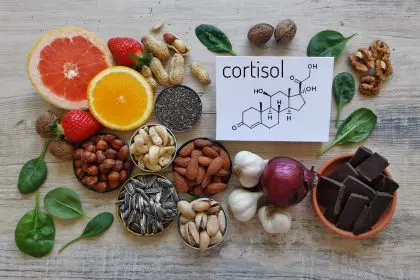Depression affects millions of people worldwide, yet many sufferers remain unaware that their kitchen might hold more powerful mood-lifting tools than their medicine cabinet. The connection between food and mental health runs deeper than most people realize, with certain nutrients possessing the ability to literally rewire brain chemistry and restore emotional balance in remarkably short timeframes.
The 21-day transformation isn’t just wishful thinking—it’s based on the brain’s incredible ability to form new neural pathways and restore healthy neurotransmitter function when provided with the right nutritional building blocks. Unlike pharmaceutical approaches that often take weeks to show effects and come with unwanted side effects, targeted nutritional interventions can begin improving mood within days while simultaneously supporting overall health.
This approach doesn’t minimize the complexity of depression or suggest that severe cases don’t require professional support. Instead, it recognizes that nutrition plays a fundamental role in brain health that’s often overlooked in traditional mental health treatment. By understanding how specific foods influence mood-regulating brain chemicals, people can take control of their mental health in ways they never imagined possible.
Understanding depression’s nutritional roots
Depression isn’t simply a matter of negative thinking or emotional weakness—it’s a complex condition involving disrupted brain chemistry, inflammation, and cellular dysfunction that can often be traced to nutritional deficiencies and dietary patterns. The standard modern diet, high in processed foods and low in essential nutrients, creates the perfect storm for depression development.
The brain requires specific nutrients to produce mood-regulating neurotransmitters like serotonin, dopamine, and norepinephrine. When these building blocks are missing from the diet, the brain cannot manufacture adequate amounts of these crucial chemicals, leading to the symptoms we recognize as depression: persistent sadness, loss of interest, fatigue, and hopelessness.
Chronic inflammation, often triggered by poor dietary choices, directly contributes to depression by disrupting normal brain function and neurotransmitter production. Foods high in sugar, refined carbohydrates, and unhealthy fats promote inflammatory processes that can literally inflame brain tissue and interfere with mood regulation.
Blood sugar instability, caused by consuming processed foods and skipping meals, creates a rollercoaster of energy and mood that can mimic or worsen depression symptoms. When blood sugar crashes, the brain perceives this as a crisis, triggering stress hormones that further disrupt mood and cognitive function.
Day 1-7: Foundation building phase
The first week focuses on eliminating mood-damaging foods while introducing key nutrients that support neurotransmitter production. This phase often produces noticeable energy improvements within the first few days as blood sugar stabilizes and inflammation begins to decrease.
Removing refined sugars and processed foods represents the most crucial first step. These foods create rapid blood sugar spikes followed by crashes that trigger mood instability, anxiety, and cravings. Eliminating them allows the brain’s natural mood regulation systems to begin functioning more effectively.
Adding high-quality protein at every meal provides the amino acids necessary for neurotransmitter production. Tryptophan, found in turkey, eggs, and pumpkin seeds, serves as the building block for serotonin production. Tyrosine, abundant in fish, chicken, and almonds, helps create dopamine and norepinephrine.
Omega-3 fatty acids from wild-caught fish, walnuts, and flaxseeds begin reducing brain inflammation while supporting healthy neurotransmitter function. These essential fats literally become part of brain cell membranes, improving communication between neurons and supporting mood stability.
Complex carbohydrates from vegetables, fruits, and whole grains help transport tryptophan across the blood-brain barrier, enhancing serotonin production. Unlike simple sugars that cause mood swings, these carbohydrates provide steady energy while supporting neurotransmitter synthesis.
Day 8-14: Neurotransmitter optimization phase
The second week builds on the foundation by introducing specific foods that directly support the production and function of mood-regulating brain chemicals. Many people notice significant mood improvements during this phase as neurotransmitter levels begin to normalize.
Fermented foods like kefir, sauerkraut, and kimchi introduce beneficial bacteria that produce neurotransmitters directly in the gut. These probiotics manufacture GABA, serotonin, and other mood-regulating compounds while reducing inflammation and supporting the gut-brain connection.
Dark leafy greens provide folate, a B vitamin essential for neurotransmitter production and brain function. Folate deficiency directly contributes to depression, and restoring adequate levels often produces rapid mood improvements. Spinach, kale, and romaine lettuce represent excellent sources.
Magnesium-rich foods like dark chocolate, avocados, and pumpkin seeds support over 300 enzymatic reactions in the body, including those involved in neurotransmitter synthesis. Magnesium deficiency contributes to anxiety and depression, while adequate intake promotes relaxation and mood stability.
Zinc from oysters, beef, and pumpkin seeds plays crucial roles in neurotransmitter function and brain health. Even mild zinc deficiency can contribute to depression, while optimal levels support healthy mood regulation and cognitive function.
Day 15-21: Brain rewiring and mood stabilization
The final week focuses on foods that support neuroplasticity—the brain’s ability to form new neural pathways and adapt to positive changes. This phase often produces the most dramatic and lasting mood improvements as the brain develops new patterns of healthy function.
Blueberries and other berries provide anthocyanins and other compounds that cross the blood-brain barrier and directly support brain cell health. These antioxidants protect neurons from damage while promoting the growth of new brain cells and connections.
Turmeric, particularly when combined with black pepper, provides curcumin that reduces brain inflammation and supports neuroplasticity. This golden spice has shown remarkable ability to improve mood and cognitive function while protecting against neurodegenerative diseases.
Green tea contains L-theanine, an amino acid that promotes relaxation without sedation while supporting healthy neurotransmitter balance. The combination of L-theanine with modest amounts of caffeine creates alert calmness that many people find superior to coffee for mood support.
Eggs provide choline, which supports acetylcholine production—a neurotransmitter important for mood, memory, and cognitive function. The complete protein in eggs also provides all essential amino acids needed for neurotransmitter synthesis.
Key nutrients for mood transformation
Certain nutrients play particularly crucial roles in mood regulation and depression recovery. Understanding these connections helps explain why targeted nutritional approaches can be so effective for mental health support.
B vitamins work together as a complex to support neurotransmitter production and nervous system function. B6 helps convert tryptophan to serotonin, B12 supports nerve function and mood regulation, and folate aids in neurotransmitter synthesis. Deficiencies in any B vitamin can contribute to depression symptoms.
Vitamin D acts more like a hormone than a vitamin, influencing gene expression and neurotransmitter production throughout the brain. Low vitamin D levels strongly correlate with depression, particularly seasonal affective disorder, while adequate levels support mood stability and cognitive function.
Iron deficiency can mimic depression symptoms, causing fatigue, difficulty concentrating, and mood changes. Women are particularly susceptible to iron deficiency, which may partially explain higher depression rates. Consuming iron-rich foods with vitamin C enhances absorption and supports energy production.
Selenium from Brazil nuts, tuna, and eggs supports thyroid function and acts as a powerful antioxidant in the brain. Even mild selenium deficiency can contribute to mood problems, while adequate intake supports emotional well-being and cognitive function.
The gut-brain connection in depression
The digestive system houses the largest concentration of serotonin in the body, with about 90 percent of this mood-regulating neurotransmitter produced in the gut rather than the brain. This connection explains why digestive health so profoundly influences mental health and why dietary interventions can be so effective for depression.
The gut microbiome—the trillions of bacteria living in the digestive system—directly influences mood through multiple pathways. Beneficial bacteria produce neurotransmitters, reduce inflammation, and communicate with the brain through the vagus nerve. Disrupted gut bacteria populations strongly correlate with depression and anxiety.
Processed foods, artificial sweeteners, and excessive sugar feed harmful bacteria while starving beneficial microbes. This imbalance, called dysbiosis, promotes inflammation and disrupts neurotransmitter production, contributing to depression development and persistence.
Healing the gut through targeted nutrition often produces rapid mood improvements as beneficial bacteria populations recover and inflammation decreases. Prebiotic foods like garlic, onions, and asparagus feed good bacteria, while probiotic foods introduce beneficial microbes directly.
Foods that sabotage mood recovery
Certain foods actively interfere with depression recovery by promoting inflammation, disrupting neurotransmitter function, and creating blood sugar instability. Eliminating these mood saboteurs is often as important as adding beneficial foods.
Refined sugar creates addictive patterns in the brain similar to drugs, leading to cravings, mood swings, and energy crashes that worsen depression symptoms. Hidden sugars in processed foods can undermine recovery efforts even when obvious sweets are avoided.
Trans fats and highly processed vegetable oils promote inflammation throughout the body, including the brain. These unhealthy fats interfere with cell membrane function and neurotransmitter production while increasing depression risk.
Excessive caffeine can worsen anxiety and disrupt sleep patterns that are crucial for mood regulation. While moderate amounts may provide benefits, high caffeine intake often contributes to mood instability and interferes with recovery.
Alcohol, despite its temporary mood-lifting effects, is ultimately a depressant that disrupts sleep, depletes B vitamins, and interferes with neurotransmitter function. Even moderate alcohol consumption can impede depression recovery.
Meal timing and blood sugar stability
When you eat can be just as important as what you eat for mood regulation. Blood sugar stability plays a crucial role in maintaining steady energy and mood throughout the day, while blood sugar swings can trigger or worsen depression symptoms.
Eating regular meals prevents the blood sugar crashes that can trigger mood drops and cravings for unhealthy foods. Skipping meals forces the body to release stress hormones to maintain blood sugar, creating a stress response that interferes with mood regulation.
Protein with every meal slows carbohydrate absorption and helps maintain steady blood sugar levels. This combination provides sustained energy while supporting neurotransmitter production throughout the day.
Healthy fats help slow digestion and provide steady energy while supporting brain function. Including sources like avocados, nuts, or olive oil with meals enhances nutrient absorption and promotes satiety.
Starting the day with a protein-rich breakfast sets the stage for stable blood sugar and mood throughout the day. Eggs, Greek yogurt, or protein smoothies provide sustained energy while supporting neurotransmitter production.
Hydration and brain function
Proper hydration plays a crucial but often overlooked role in mood regulation and cognitive function. Even mild dehydration can contribute to fatigue, difficulty concentrating, and mood changes that can worsen depression symptoms.
The brain is approximately 75 percent water, and maintaining adequate hydration is essential for optimal neurotransmitter function and nutrient transport. Dehydration reduces blood flow to the brain and impairs the delivery of mood-supporting nutrients.
Pure water remains the best choice for hydration, though herbal teas can provide additional benefits. Green tea offers L-theanine for relaxation, while chamomile tea provides calming compounds that support sleep and stress reduction.
Caffeinated beverages can contribute to hydration but shouldn’t be the primary source due to their diuretic effects. Balancing caffeinated drinks with extra water helps maintain optimal hydration status.
Adding a pinch of high-quality sea salt to water can improve hydration by supporting electrolyte balance, particularly for people who exercise regularly or live in hot climates.
Supplements vs. whole foods
While whole foods provide the foundation for mood recovery, certain supplements can accelerate progress and fill nutritional gaps that are difficult to address through diet alone. Understanding when supplements might be helpful can enhance recovery efforts.
Omega-3 supplements provide concentrated doses of EPA and DHA that may be difficult to obtain through diet alone, particularly for people who don’t regularly consume fatty fish. High-quality fish oil supplements can provide therapeutic doses for mood support.
Vitamin D supplementation becomes necessary for people with limited sun exposure or those living in northern climates during winter months. Blood testing can determine optimal dosing for individual needs.
B-complex supplements ensure adequate intake of all B vitamins needed for neurotransmitter production, particularly for people with digestive issues that may impair absorption or those following restrictive diets.
Magnesium supplements can help address deficiency quickly, particularly for people experiencing stress, anxiety, or sleep problems. Different forms of magnesium offer varying benefits and absorption rates.
Tracking progress and maintaining motivation
Monitoring mood changes and physical symptoms during the 21-day period helps identify which foods and strategies provide the greatest benefits for individual needs. This awareness supports long-term success and motivation.
Keeping a food and mood journal reveals patterns between dietary choices and mental health symptoms. This tracking helps identify trigger foods and beneficial patterns while providing motivation during challenging periods.
Taking photos and measurements can document physical changes that often accompany mood improvements, including clearer skin, better sleep, and increased energy levels. These visible changes provide additional motivation for dietary adherence.
Setting realistic expectations helps maintain motivation when progress feels slow. While some people notice improvements within days, others may require the full 21 days or longer to experience significant changes.
Long-term success strategies
The 21-day period provides a foundation for lasting change, but maintaining these improvements requires ongoing commitment to healthy eating patterns. Developing sustainable strategies ensures that mood benefits continue long-term.
Meal planning and preparation help maintain healthy eating patterns even during busy or stressful periods. Having nutritious options readily available prevents reliance on processed convenience foods that can undermine mood stability.
Building a support network of family and friends who understand and support dietary changes can make the difference between short-term success and lasting transformation. Sharing meals and recipes with supportive people enhances long-term adherence.
Continuing education about nutrition and mental health helps maintain motivation and provides new strategies for ongoing improvement. Understanding the science behind food and mood connections reinforces the importance of nutritional choices.
Regular check-ins with healthcare providers ensure that dietary approaches complement any necessary medical treatments and that overall health remains optimal during the transition to new eating patterns.

















